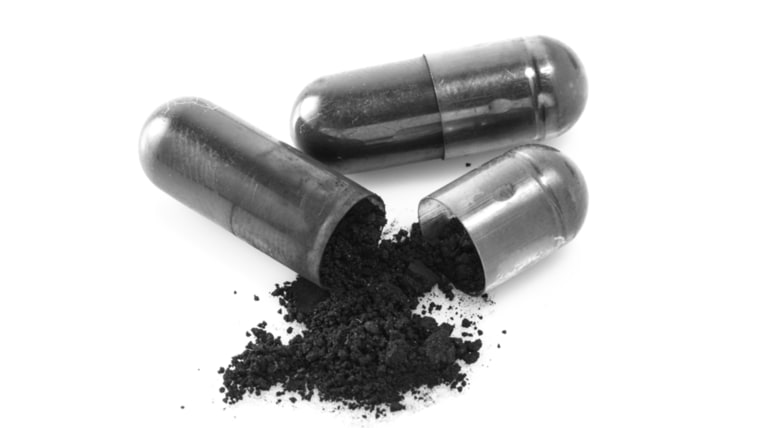After waking up after a night on the town, some people turn to activated charcoal drinks or pills to quell the ravages of a hangover. Others, fearful that toxins and metals are building up in their bodies, use activated charcoal detox. Some even claim that activated charcoal causes them to lose weight and lower their cholesterol.
Suddenly, something that was best left for grilling seems to be the latest, greatest health fad. But, is it okay to take an activated charcoal supplement daily?
Well, technically, yes.
“There would be minimal risk,” Dr. Michael Lynch, medical director for Pittsburgh Poison Center and assistant professor in the department of emergency medicine at the University of Pittsburgh School of Medicine, tells TODAY. “Overall, it is pretty safe.”

Activated charcoal — which certainly differs from the briquettes tossed in the grill — can cause some mild GI upset, including diarrhea. Some people mix it with laxatives to avoid this. Otherwise, the hazards are low, says Lynch.
But does activated charcoal really do what fans claim it can? After all, doctors often use it in emergency rooms to treat overdosing and poisoning.
"Activated" means the charcoal — made from wood, peat, or coconut shells — was heated, expanding its surface area. The charcoal clings to substances in the stomach, such as aspirin, and prevents the body from absorbing it. This is the reason people think that charcoal can help with hangovers; they believe it absorbs the alcohol, halting the icky symptoms associated with over-imbibing.
“It does not bind well to ethanol or alcohol because of the chemical structure,” says Lynch, putting that myth to rest.
Some people worry, too, that toxins or metals build up in their bodies, and believe charcoal supplements will draw out the bad substances. It doesn't bind to metal, though, and the body already does a good job with toxins.
“Our bodies have the ability to detox ourselves. That is the majority of the role of the liver … it does so much of the detoxing,” Kristin Kirkpatrick, manager of wellness nutrition services at Cleveland Clinic’s Wellness Institute, tells TODAY.

Activated charcoal does bind well to many prescription drugs, though. This means that people who rely on something like blood pressure medication and also take charcoal might make medication less effective.
“If you take [charcoal] about the time when you are taking your normal prescription medication … it would limit your ability to absorb [them],” Lynch says.
Trying a summer cleanse? Stay healthy with these alternatives to juice
Waiting a few hours after taking a medication might make it less likely that the activated charcoal will interfere with the prescription drugs.
And is there any truth to the claim that activated charcoal can help people lower cholesterol and lose weight?
“There have been no studies that actually [show] some of the health benefits,” says Kirkpatrick.
She recommends that people interested in detoxing try to do something proven to be healthy instead, such as reducing sugar from their diets.
Why do we have a sweet tooth? 5 surprising facts about sugar
“We are constantly looking for a quick fix, and we are searching for it because we have screwed up our diets most royally. Putting activated charcoal into your diets isn't getting back to the basics—[it’s] a quick fix with no scientific evidence,” she says.
Both Kirkpatrick and Lynch also warn that activated charcoal remains a supplement, which means it doesn't fall under the same regulation as prescription drugs.
“You truly have no way of verifying what you are getting,” concludes Lynch.